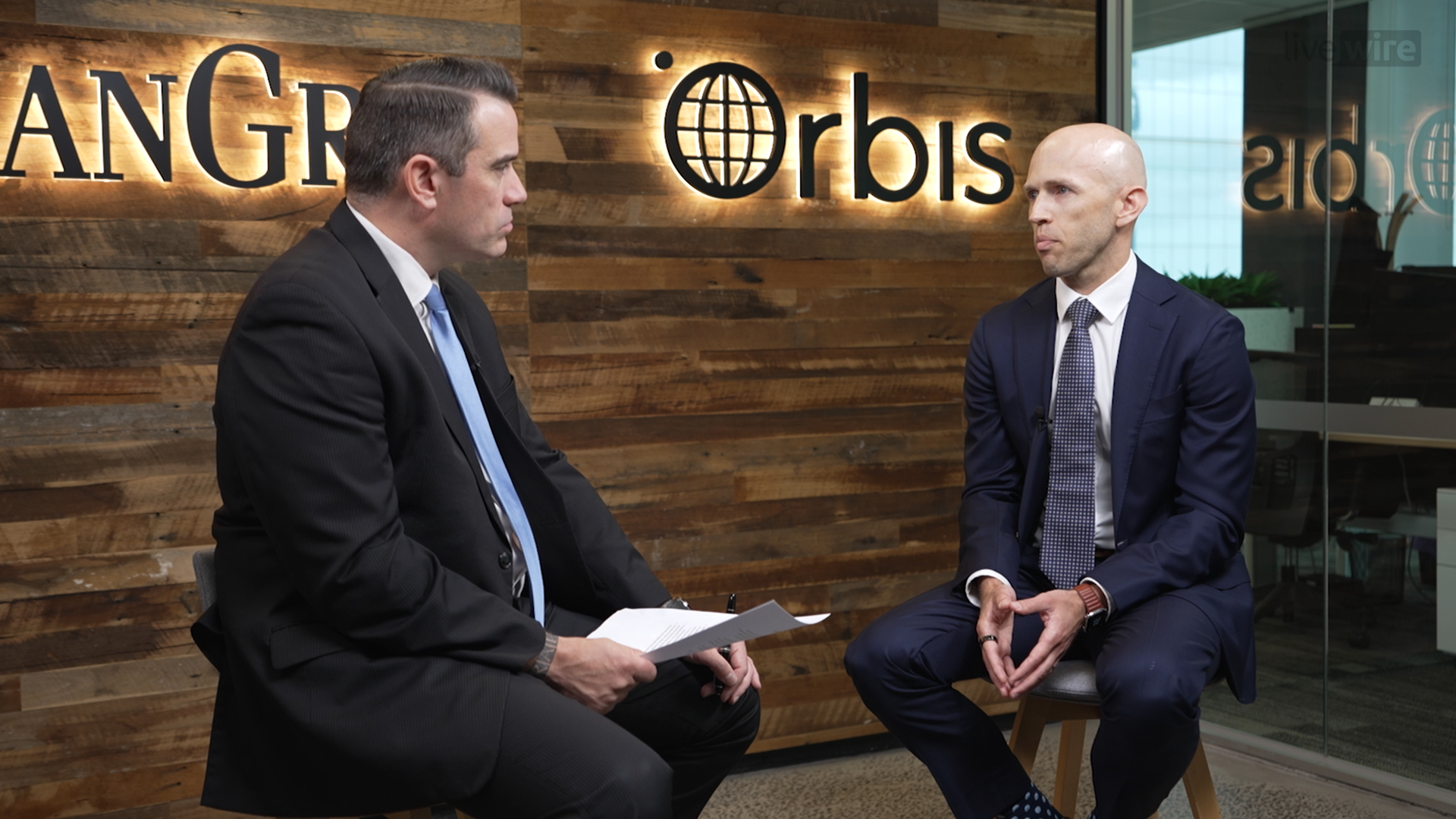“That’s not diversification”: The overlooked opportunity trading at a 30% discount
In a world increasingly defined by volatility and shifting global power dynamics, investors are on the hunt for opportunities beyond the familiar shores of developed markets. One area that's quietly building momentum is emerging markets—regions that, while long overlooked, may now be poised for a renaissance.
Vern du Preez from Orbis Investment, believes the current environment presents a rare chance for contrarian investors.
“Emerging markets have been quite out of favour for several years, even considered uninvestible by some,” he explains.
“But that is exactly what makes them so interesting to us.”
Trading at significant discounts—about 30% below developed markets and 40% below the US—emerging markets are offering some of the most attractive relative valuations in decades.
This valuation gap, du Preez points out, is not reflective of any major systemic crisis as seen in the past, such as the Asian financial crisis, but rather a disconnect between sentiment and reality. That disconnect, he argues, is the core of the opportunity.
For investors feeling the weight of concentrated portfolios, particularly those heavily exposed to the US tech sector, emerging markets offer something fundamentally different.
“If you are… a passive investor in the world index, you'll have 20% or more of your portfolio in just seven US tech giants.
That's not diversification, that's concentration,” says du Preez.
In contrast, emerging markets present different cycles, risks, and growth drivers—exactly the kind of diversification portfolios need in today's environment.
In the interview above, du Preez further breaks down the opportunity, explains how Orbis approaches the opportunity, and shares examples of the companies that make it into the portfolio.
A summary of the interview can be read below but for the full experience, make sure to watch the video.

Interview summary
A high-conviction, bottom-up approach
Orbis Investment approaches emerging markets with a contrarian mindset, running a high-conviction, benchmark-agnostic portfolio built from the bottom up.
“We don't care much for hugging the benchmark—quite the opposite,” du Preez notes.
Orbis relies on deep fundamental research, seeking companies that exhibit a disconnect between market price and intrinsic value.
The firm’s dedicated emerging markets team operates from Hong Kong, providing valuable proximity and local insight. This “boots on the ground” presence means the team regularly visits companies, engages with management, and assesses operations firsthand.
“We are pretty close to the companies that we invest in,” says du Preez. “We do seek out those aligned management teams.”
Between the Orbis global investment team and its sister company Allan Gray in Africa, the strategy benefits from diverse viewpoints and broad expertise.
Country-agnostic, opportunity-focused
Rather than allocating capital based on geographic mandates, Orbis prioritises mispriced opportunities—regardless of location.
“It’s less a question about geography or sector and more about mispriced opportunities and value wherever they might be hiding,” du Preez explains.
Currently, the fund is overweight Korea and Europe, and underweight India, purely based on bottom-up assessments. This has led to holdings such as Jardine Matheson, a Hong Kong-based conglomerate; Astra International in Indonesia; and global tech leaders like TSMC, Tencent, and Netea.
Interestingly, the portfolio also includes Wise—a FinTech listed in London but deeply engaged in emerging markets—highlighting Orbis’s flexible, outcome-driven mindset.
What ties these companies together?
“Strong balance sheets, attractive yields, and aligned ownership,” says du Preez.
Owner-operators with “skin in the game” are a particular favourite, ensuring that management incentives align with shareholder interests.
Risk is the price of opportunity
Volatility in emerging markets is a given, but Orbis views it through a different lens.
“We don’t necessarily view volatility as a risk, but rather as the price for opportunity,” says du Preez.
The team actively manages risk by maintaining a concentrated portfolio—just 40 stocks in total, with the top 25 making up 94% of the fund. This allows for deep understanding of each position and decisive action when required.
Moreover, Orbis favours companies with robust governance structures and sound capital allocation—traits that can often mitigate broader market risks.
Underrepresented and undervalued
Despite comprising more than half of the world’s population and about a third of global GDP, emerging markets make up just 10% of the global index—and typically only 6% of Australian investor portfolios. This disconnect, according to du Preez, presents a massive blind spot.
“Emerging markets are undervalued. They are underrepresented. Potentially a blind spot in many portfolios,” he says.
His message to investors is simple: don’t let recent underperformance cloud your judgment.
“Don't forget about emerging markets. Don't let sentiment and things like recency bias blind you to the long-term opportunity,” he urges.
For patient, long-term investors willing to think independently, emerging markets might just be the most compelling opportunity hiding in plain sight.
A genuine diversification opportunity
Orbis has been investing in undervalued and ignored global stocks for over 30 years. Interested in long-term potential, rather than short-term performance, they focus on unearthing companies trading for less than they are worth, rather than timing market trends. With the investment landscape rapidly changing, and with valuations where they are today, Orbis' contrarian style and high value exposure offers a genuine diversification opportunity for client portfolios. Find out more.

4 topics
1 contributor mentioned
